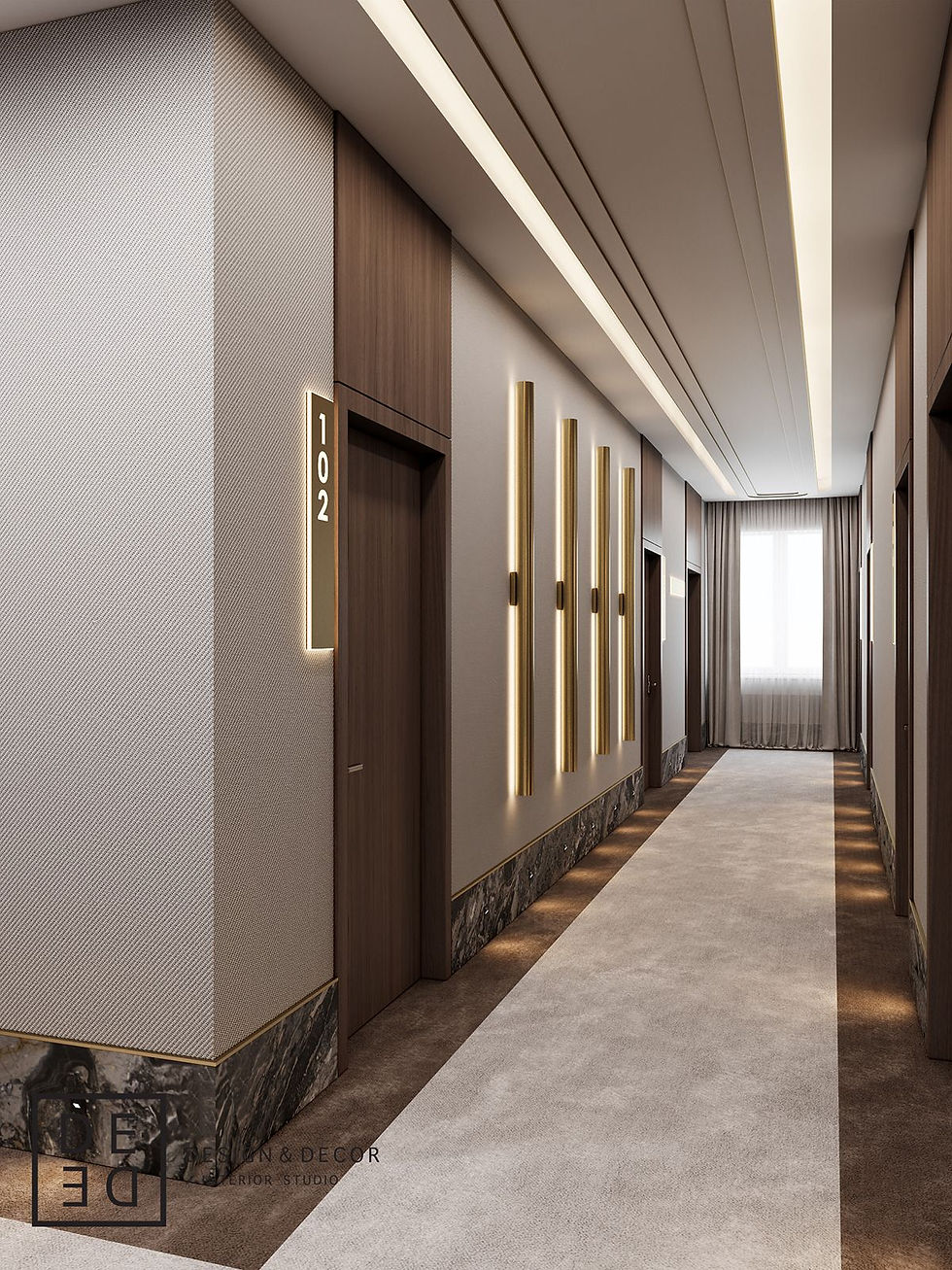The Significance of Renovation in Hotels: Enhancing Guest Experience and Sustainability
- Ar.Arunya Sumi Chandresan
- Sep 19, 2023
- 3 min read
Hotel renovation is a critical and ongoing process that plays a pivotal role in ensuring a hotel's success, competitiveness, and long-term sustainability. It involves updating, refreshing, or even completely transforming various aspects of the property to meet the evolving needs and expectations of guests. Here's why renovation is essential in a hotel:

1. Guest Experience Enhancement:
The guest experience is at the heart of the hospitality industry. Renovation allows hotels to modernize their facilities, rooms, and common areas to provide guests with comfortable, up-to-date, and enjoyable stays. Updated amenities, stylish interiors, and state-of-the-art technology contribute to overall satisfaction.
2. Maintaining Competitiveness:
The hotel industry is highly competitive, and guests have a wide array of choices. Renovation helps hotels stay relevant and competitive in the market by offering fresh, appealing spaces and amenities. A well-renovated hotel can attract more guests and secure repeat business.
3. Meeting Guest Expectations:
Guest expectations continually evolve, and what was considered luxurious and modern a few years ago may now be outdated. Renovation allows hotels to stay aligned with current trends, technology, and design preferences, ensuring that guests have access to the latest conveniences and aesthetics.
4. Energy Efficiency and Sustainability:
Renovation often includes updates to improve energy efficiency and sustainability. This can include replacing outdated HVAC systems, installing energy-efficient lighting, and incorporating eco-friendly materials. These efforts not only reduce operational costs but also align with environmental responsibility, a growing concern for both guests and the industry.

5. Brand Image and Reputation:
A well-maintained and aesthetically pleasing hotel enhances the brand's image and reputation. Positive guest experiences in newly renovated spaces lead to favorable reviews and word-of-mouth recommendations, which are invaluable for attracting new guests.
6. Compliance and Safety:
Renovation allows hotels to address compliance issues and safety concerns. It ensures that the property meets current building codes, fire safety regulations, and accessibility standards, reducing potential liabilities.

7. Maximizing Revenue Potential:
Renovations can create opportunities for revenue growth. Updated facilities and rooms may command higher room rates, and the addition of new amenities or event spaces can increase bookings for conferences, weddings, and other events.
8. Long-Term Asset Preservation:
Regular renovation and maintenance help protect the long-term value of the hotel property. Preventative measures and timely repairs can extend the life of assets, reducing the need for costly replacements in the future.
9. Adaptation to Market Changes:
Renovation allows hotels to adapt to changes in the market, such as shifts in traveler preferences, demographics, or emerging travel trends. Flexibility in design and functionality ensures that hotels can cater to a diverse range of guests.

10. Catering to New Traveler Preferences:
Traveler preferences are constantly evolving. Renovation enables hotels to incorporate features that align with these changing preferences. This may include adding fitness centers, spa facilities, or pet-friendly accommodations to cater to specific traveler needs. Today's travelers expect seamless connectivity and modern technology in their hotel experience. Renovations can include the installation of high-speed Wi-Fi, smart room controls, and charging stations, ensuring that hotels remain technologically up-to-date.
11. Employee Morale and Productivity:
Renovations can also have a positive impact on hotel staff. Updated and well-maintained spaces can boost employee morale and productivity, leading to better service and guest satisfaction.
In conclusion, hotel renovation is not just about aesthetics; it is a strategic investment in a hotel's future. By continuously improving and adapting to the needs and expectations of guests, hotels can maintain their competitiveness, reputation, and sustainability in a dynamic and ever-changing industry.
.png)




Comments